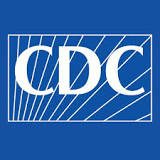In December, the Centers for Disease Control and Prevention (CDC) announced that early data suggested the current 2014-15 flu season could be severe. The CDC urges immediate vaccination for anyone still unvaccinated this season and recommends prompt treatment with antiviral drugs for people at high risk of complications who develop flu.
So far this year, seasonal influenza A H3N2 viruses have been most common. There often are more severe flu illnesses, hospitalizations and deaths during seasons when these viruses predominate. For example, H3N2 viruses were predominant during the 2012-13, 2007-08 and 2003-04 seasons, the three seasons with the highest mortality levels in the past decade. All were characterized as “moderately severe.”
Increasing the risk of a severe flu season is the CDC finding that roughly half of the H3N2 viruses analyzed are “drift” variants: viruses with genetic changes that make them different from that season’s vaccine virus. This means the vaccine’s ability to protect against those viruses may be reduced, although vaccinated people may have a milder illness if they do become infected.
“It’s too early to say for sure that this will be a severe flu season, but Americans should be prepared,” said CDC Director Tom Frieden. “We can save lives with a three-pronged effort to fight the flu: vaccination, prompt treatment for people at high risk of complications and preventive health measures, such as staying home when you’re sick, to reduce flu spread.” Depending on the formulation, flu vaccines protect against three or four different flu viruses. Even during a season when the vaccine is only partially protective against one flu virus, it can protect against the others.



















